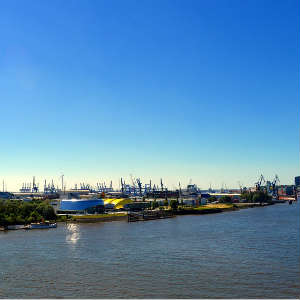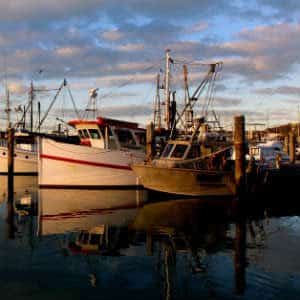The Longshore and Harbor Workers Compensation Act, commonly referred to as the Longshore Act or ‘LHWCA’, is a workers’ compensation law that covers most dock workers and maritime workers who are not covered by the Jones Act.
Who Exactly Is Covered Under The LHWCA?
Anyone who works on a navigable waterway in the United States and whose work involves vessel maintenance or construction, loading of goods, or unloading of goods on the vessel, dock, piers, and lick can be covered under the act. Typically, this includes:
- Ship builders
- Ship breakers
- Pile drivers
- Clerks and checkers
- Forklift Operators
- Warehouse workers
- Winch operators
- Repairmen
- Employees who have been hired to work at a facility that is designed to aid the navigation of vessels.
Are All Injuries Covered?
Yes, any injury that was sustained while the employee is at work is covered. In addition to this, the act also covers illnesses that were obtained because of the employee’s job and may even cover the aggravation of a pre-existing injury.
Filing A Claim
In order to obtain coverage, the injured employee must inform both their employer and the U.S. Department of Labor within 30 days of the date they became aware. While it might seem silly to phrase it that way because it should be clear that an injury occurred very quickly, some illnesses take months and years to develop.
What Type Of Compensation Can Be Obtained?
Like workers’ compensation, injured workers can get coverage for medical treatments they require because of their on the job injury or illness and wage loss. Wage loss compensation is based on the worker’s’ average weekly wage. However, at maximum, the amount given for wage loss will only be two-thirds of the weekly wage.
How Can Injured Workers Obtain Full Compensation?
There are other forms of compensation that an injured employee may be able to pursue depending on their injury or illness and the circumstance of how they obtained that medical condition. Alternative forms of compensation include:
Social Security Disability
If the injuries that were sustained prevent the worker from returning to their job, they may be able to file for assistance through Social Security Disability. In order to be eligible for this, the employee must:
- Have worked for a specific period of time, usually twenty out of forty quarters.
- Have a severe enough physical OR emotional disability to keep them from working.
- Provide medical evidence that indicates they are unable to work.
Even with the necessary information, obtaining these benefits isn’t easy.
Personal Injury Lawsuits
Although employees typically can’t pursue legal action against their employers, in many cases, a third party’s negligence contributed to their accident. Examples of a third party include:
- A contractor hired to work on the job site who fails to implement correct safety standards.
- The manufacturer of a defective tool.
- The person navigating a ship which crashes into a dock.
Personal injury lawsuits can provide the plaintiff with compensation for:
- All medical expenses.
- Full lost wages.
- Physical pain and suffering.
- Emotional trauma.
The amount obtained in each case differs because no two plaintiffs suffer the same losses.
What Can I Do If My Loved One Died?
If your loved one died while working, the LHWCA does provide death benefits. Loved ones that can claim these benefits typically include the children and spouses of the deceased. The benefit provided is a payment that is based on the deceased’s weekly wage.
In addition to this, if the deceased worker would have been able to file a personal injury lawsuit if they had survived, their loved ones can pursue a wrongful death lawsuit. In addition to the benefits that can be obtained under a personal injury lawsuit, a wrongful death complaint can provide compensation for:
- Loss of inheritance.
- Loss of consortium.
- Funeral and burial expenses.
Our team understands how stressful this time is – you are already dealing with the unexpected loss of a family member and are now trying to figure out how to stay financially safe. That’s why our firm is dedicated to helping get that compensation and to taking as much of the burden away from our clients as possible.


